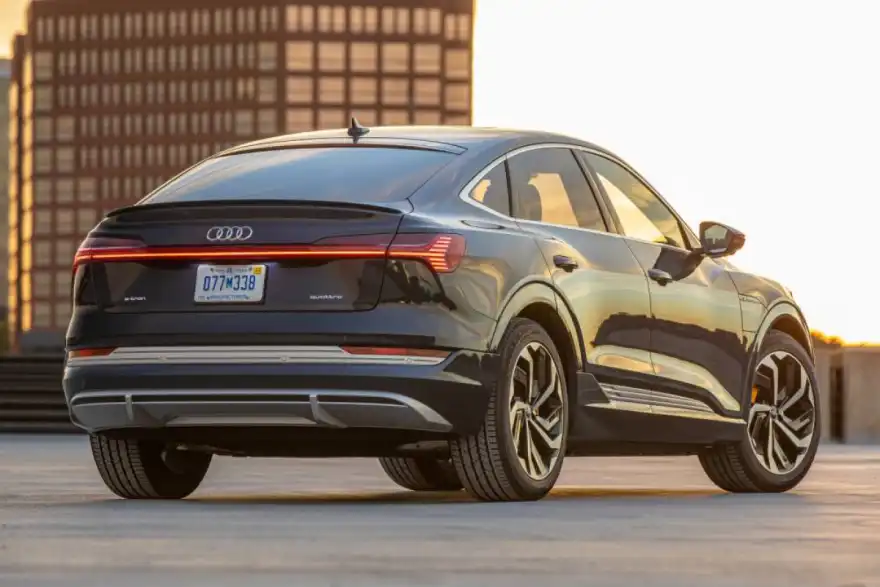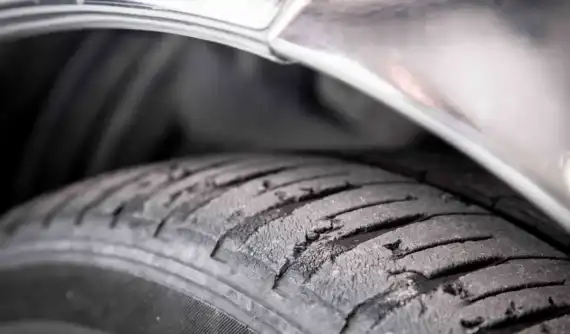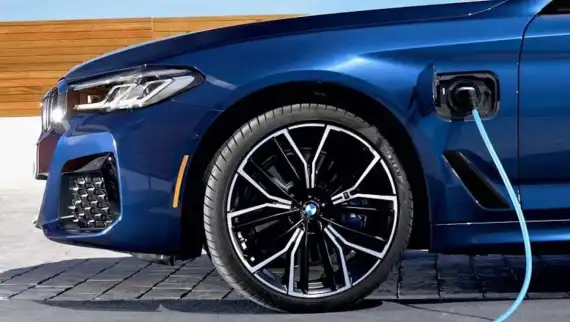
Research from Liverpool Victoria has revealed electric vehicles are twice as likely to suffer a wheel or tyre problem than conventional petrol and diesel cars.
More than a third of breakdown calls made by owners are due to punctures, tyre damage or wheel issues, according to Liverpool Victoria's vehicle recovery division, Britannia Rescue.

The higher probability of wheel and tyre problems with battery models is 'often attributed to the excess weight of the car', according to the firm and industry experts have been calling on vehicle manufacturers to work more closely with tyre manufacturers to help mitigate these issues.
The report also says the much-hyped range anxiety, that acts as a barrier to many potential electric car owners, shouldn’t be an issue, with only 11 per cent of requests from EV drivers coming from those who have ran out of charge.
In comparison with the 36 percent of electric owners that run into tyre and wheel problems, just 16 per cent of all petrol and diesel breakdowns are caused by the same problem.
Tyre manufacturers are already adjusting to EVs and their heavier weight by producing rubber specific for these cars.

Continental, for example, introduced a new HL – heavy load – rating for tyres to be used on electric cars.
It also develops these tyres to be quieter than conventional products for petrol and diesel cars due to the near-silent nature of EVs and also designs them to have minimal rolling resistance to make them more energy efficient and less range sapping.
Delving deeper into LV= Britannia Rescue's explanations for why EV owners call for breakdown recovery support shows that drivers being unable to start their electric car, often at home, accounts for 21 per cent of calls – otherwise known as 'dead on key'.
There are a variety of reasons this could happen, such as a flat battery, a battery not holding its charge or the vehicle not being driven for a length of time, but it is more prevalent in the winter months with cars taking that bit longer to warm up.
The 'dead on key' issue for electric car drivers happens little more than half as often it does for petrol or diesel cars, which features as the breakdown reason in 41 per cent of calls to LV= Britannia Rescue.
Henry Topham, managing director of LV= Britannia Rescue, said: 'Range anxiety has been built up to be a thing for people to be concerned about when it comes to going green, but our data shows that in reality it's a very rare issue for electric car drivers.
'Generally electric cars perform very well and aren't susceptible to suffering nearly as many issues as petrol or diesel models, but if you do have a problem it's more likely to be wheel or tyre related, or dead on key.
'And as we get into the cold, dark winter months it's good for drivers to be aware of these potential issues and make sure their car is regularly being checked and looked after.'



